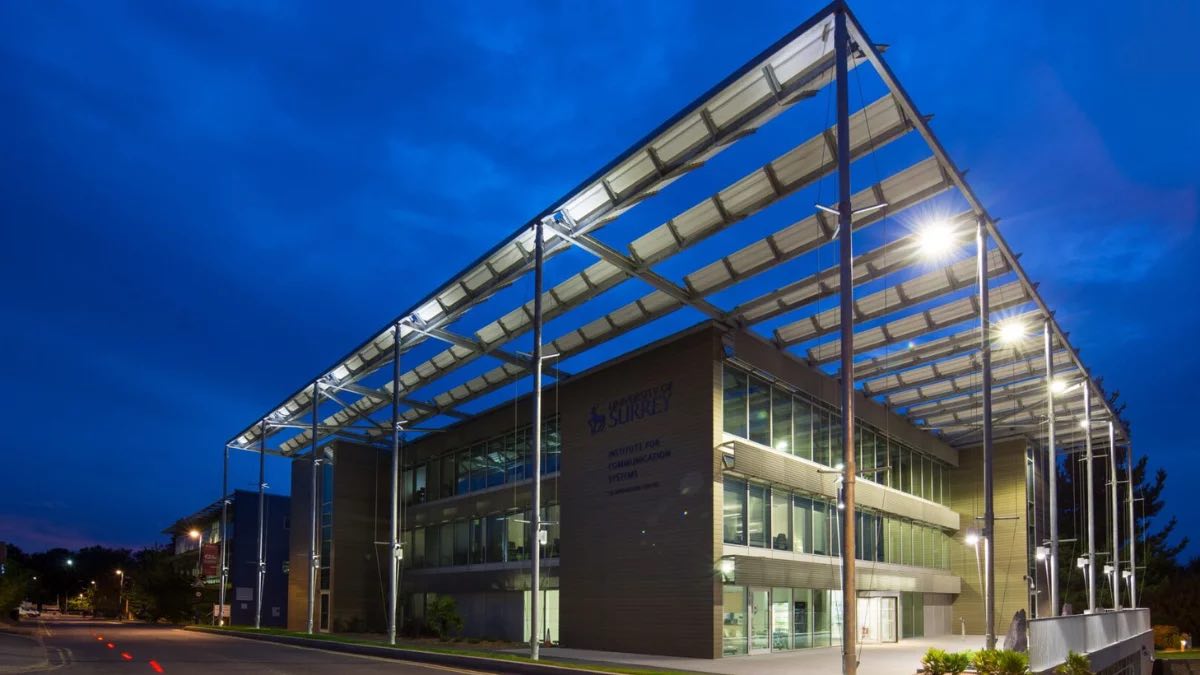

The comment comes as the Engineering and Physical Sciences Research Council (EPSRC) announced that Surrey’s 5G/6G Innovation Centre will lead a new £8 million Centre for Doctoral Training in Future Open Secure Networks (FORT).
Over the next eight years, FORT will train more than 50 post-graduate researchers, who will become leaders with unique expertise in wireless communications, cybersecurity, networking, and artificial intelligence (AI). Surrey’s future cohort will influence the roadmaps of future open networking and security technologies and their applications.
In partnership with Queen’s University Belfast’s (QUB) Centre for Secure Information Technologies, FORT also enjoys support from more than 21 industry partners. These partners include: Amazon Web Services, Ampliphae, Angoka, AWTG, Catapult Satellite Applications, Codasip, Ericsson, Hewlett Packard Enterprises, HP, Intel, Interdigital, Keysight Technologies, Kyndryl, National Physical Laboratory, Nvidia, OpenWeb, Qualcomm, Rolls Royce, Virgin Media O2, and Viavi Solutions. I want to extend my heartfelt gratitude to EPSRC for backing the Future Open Secure Networks initiative. I am equally thankful for the support of our 21 industry partners and look forward to working closely with colleagues from Queen’s University Belfast. This powerful team has a unique vision, expertise, and mission of making the UK a powerhouse for future telecommunications.
In a world evolving at breakneck speed, our programme is designed with this dynamic future in mind. We’re committed to nurturing future visionaries and leaders with in-depth knowledge of advanced space and terrestrial networks, environmental considerations, and AI technology. The UK’s focus must now shift towards upskilling individuals capable of addressing the cyber security challenges posed by AI and take advantage of opportunities presented by societal shifts, environmental concerns, and industrial advancements. Professor Rahim Tafazolli, Head of the Institute for Communication Systems (ICS)
Along with providing a world-class education with access to industry, FORT will create an environment for students to research new and better ways to build communication networks that are safe, reliable, and ready for the future. FORT is committed to conducting responsible, ethical research in cybersecurity, AI technologies, and future networks, with a strong societal focus. This approach is designed to generate world-class academic contributions and establish a pipeline of talent for the future. With the FORT programme, we aim to create a community of 50 PhDs who will become the future, industry-conscious thinkers and leaders on secure, trustworthy and autonomous future network communications. Dr Jesus Martinez del Rincon, Co-Director of FORT and Research Director of Secure Intelligence at CSIT at QUB
Along with Professor Tafazolli and Dr Martinez del Rincon, FORT will be led by: Dr Tim Brown from Surrey, who will serve as Director of FORT, and Professor Máire O’Neill from QUB, who is Co-Investigator of FORT.













